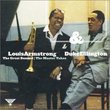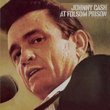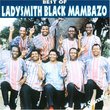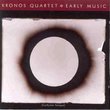| All Artists: Frederic Chopin, Cameron Carpenter, Duke Ellington, Jeanne Demessieux, Franz Liszt, Marcel Dupre, Johann Sebastian Bach, Vladimir Horowitz Title: Revolutionary [Includes Bonus DVD] Members Wishing: 0 Total Copies: 0 Label: Telarc Original Release Date: 1/1/2008 Re-Release Date: 9/23/2008 Genres: Jazz, Special Interest, Classical Styles: Chamber Music, Historical Periods, Baroque (c.1600-1750), Classical (c.1770-1830), Modern, 20th, & 21st Century, Instruments, Keyboard Number of Discs: 2 SwapaCD Credits: 2 UPC: 089408071126 |
Search - Frederic Chopin, Cameron Carpenter, Duke Ellington :: Revolutionary [Includes Bonus DVD]
![Revolutionary [Includes Bonus DVD]](https://nationalbookswap.com/cd//l/40/6440/6176440.jpg) | Frederic Chopin, Cameron Carpenter, Duke Ellington Revolutionary [Includes Bonus DVD] Genres: Jazz, Special Interest, Classical
Revolutionary showcases an artist who is not only breaking ground, but who runs a musical gamut that any musician would be extremely hard-pressed to match. There are only four organ works included. Three are major pinnacle... more » |
Larger Image |
CD DetailsSynopsis
Album Description Revolutionary showcases an artist who is not only breaking ground, but who runs a musical gamut that any musician would be extremely hard-pressed to match. There are only four organ works included. Three are major pinnacles of the organ repertoire (the blistering, nearly unplayable Etude in Octaves by the French modernist Jeanne Demessieux; Prelude and Fugue in B major by Marcel Dupré; and Bach's deeply moving chorale-prelude Now Come, Savior of the Gentiles, while the fourth is the world premiere recording of Cameron's suggestive Love Song No. 1 (2008). The album's major departures, though, are found in Duke Ellington's Solitude (wittily combined with Bach's Sheep May Safely Graze); Liszt's Mephisto Waltz, and Vladimir Horowitz' Carmen Variations. Here are two of Chopin's Études in versions so convincing that they might have been organ music; and Cameron's Evolutionary Toccata and Fugue in D Minor, an outrageous survey of the various instrumental arrangements that made Bach's work famous. All this is recorded not on a pipe organ, but on the equally revolutionary Marshall & Ogletree Virtual Pipe Organ at Trinity Church Wall Street in New York City - an organ that, rising out of the destruction of Trinity's pipe organ on September 11, 2001, continues to challenge the status quo of the pipe organ and the artistic possibilities of organ playing in general. Similarly Requested CDs
|
CD ReviewsTechnique, 5 stars----Integrity, 1 star Jeffery L. Nall | St. Louis, MO | 09/27/2008 (3 out of 5 stars) "Cameron Carpenter (formerly Taylor Carpenter) possesses what is arguably the most advanced organ technique on the planet, and quite possibly the most advanced ever. His ability to play three manuals simultaneously, his amazingly nimble pedal technique, his complete command of the instrument's every resource, are nothing less than awe-inspiring. Mr. Cameron has plainly stated that his goal is to make himself a star. He believes organ performances should be all about the performer, not the instrument, and that historically-informed performances should never stand in the way of putting on a spectacular show. Therefore, his approach to the organ's repertoire is understandably controversial. He plays Bach in a way that Bach would never have played. He uses tempos, registrations and dynamics in direct contradiction to what the composers indicated in their scores. For those who don't know better, it makes for the sonic equivalent to a trip to Disney World, worthy of fireworks and laser shows; for those who do know better, it makes for a gaudy, narcissistic display of arrogant disregard. Since I have a degree in organ performance, I can't help but "know better." I would much rather watch Mr. Carpenter improvise than butcher the greatest pieces ever written for the organ. He certainly proves himself a phenomenal performer, but the great disservice he inflicts upon those time-honored composers is hard to ignore. Mr. Cameron is an expert at improvisation, he could put on an equally spectacular show simply improvising on given themes or popular tunes. Why choose pieces from the organ repertoire and perform them in such a way? Why not play a stack of synthesizers instead of the organ? The simple answer: to get the attention of people who know better. Yes, his goal is to make himself a star, and there is no such thing as bad publicity. There is, however, such a thing as a "flash in the pan," and I suspect Mr. Cameron might be just that. The clothes, the makeup, the attitude, the quotes from interviews...this is a "look at me" personality in full bloom, and just like a group of junior-high kids at the mall, it can become annoying very quickly. Perhaps Mr. Cameron will grow out of it before his audience grows out of him. The accompanying DVD made me laugh. It looks like it was filmed on the set of American Idol and edited by the people who edit daytime soap operas. It's a shame every track on the CD wasn't filmed the way Mr. Carpenter's concerts at Trinity Wall Street were filmed. In fact, this CD should have been a DVD. If Mr. Carpenter is to become a star, it will be because of his stunning technique and unusual attire, not his sensitive and scholarly musical insight. Mr. Carpenter can't become famous if we can't see him, no more than an actor can become famous by only doing voice-overs." Entertainment Value Only Organist | Dayton, Ohio USA | 10/02/2008 (1 out of 5 stars) "Cameron Carpenter is a very talented musician with brilliant technique and a wonderful creativity. The problem is that performances (or recordings, in this case) of this nature are not about the music or the medium; rather, they are solely about the performer - musical narcissism at an illogical extreme. Need evidence? Just look at the cover. Or consider that Mr. Carpenter plays the left-hand bravura of Chopin's Revolutionary Etude in the Pedal, an unnecessary display of virtuosity affording the performance little (or no) musical advantage or gain. (The display is precisely the reason it's on the DVD.) Am I a purist? Maybe. Do I want intelligent performances where the artist asks "Does this make sense?" You bet. I also want to hear a real organ - ie. with pipes, not this computer. Would you pay to see or hear Horowitz or Richter play a Clavinova? If this makes me a purist, then sure. Be wowed by the spectacle and entertained by the quirky imagination. But don't expect profundity or insight As a final note, it would be appreciated if those who leave comments refrain from name-calling insults leveled at others who hold opposing views. It is unnecessary and impolite as well as only enervates your arguments." Revolutionary Indeed! Larry Nevel | 10/01/2008 (5 out of 5 stars) "The reviews are mixed as I expected. There is so much to consider with the CD/DVD. The purists will hate it. The novice will be blown away.
I have been learning as much as I can about Cameron from the web. As a former/retired teacher I see Cameron as a true genius- not for his technical ability, but the way he is put together mentally. He is so far beyond what the average person can grasp or comprehend, that he is completely misunderstood. Can he play tradition organ music in a tradition fashion- musically? Of course he can. So can many fine talented organists. Will those performances reach the common public? Perhaps not. Will his performances reach the common public? Probably. And in this day when youth demands over-stimulation to catch their attention, this will do it. Contrary to what the purists say, he IS very musical. The performances are just so different in their renderings, that the purists don't see/hear it- or can't accept it. Probably the latter. Cameron is another Virgil Fox or Jean Gilliou. Both were/are misunderstood, both were/are controversial, both were/are very musical and talented. Different does NOT mean BAD!!! Different is JUST different. If you can grasp what Cameron is trying to say on his recent Pipedreams {www.pipedreams.org} program #0837, he tells what he is trying to do. He has the purpose to reach a new generation and let them know that the organ is still the greatest instrument of all time and not just something found in a church for Sunday worship services. I hope to see more of Cameron Carpenter, not just hear more. Visually, he is captivating in his technical ability. I hope he will do more improvisations done on the spot and not written previously for performance. He is so good at them. Keep an open mind. Know that you are watching/hearing a genius. We have so few among us today. Good Luck, Cameron!" |

 Track Listings (11) - Disc #1
Track Listings (11) - Disc #1







